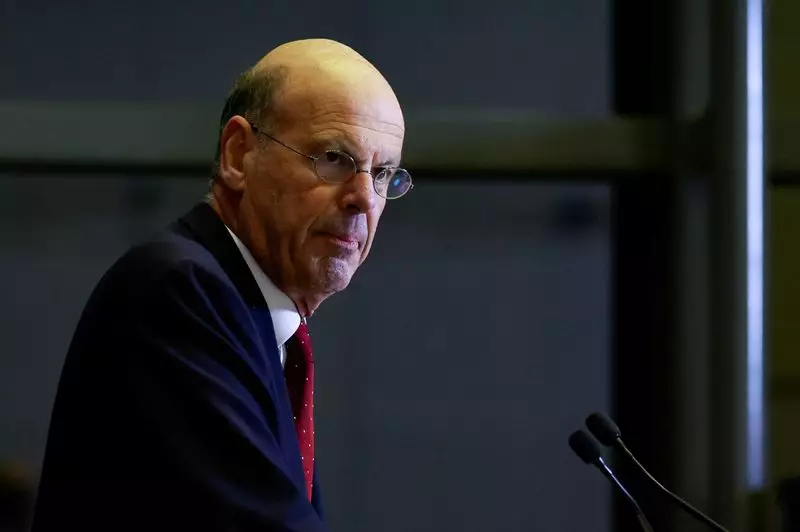In the face of mounting economic pressures, France’s newly formed government, guided by Finance Minister Eric Lombard, has embarked on a mission aimed at achieving about 50 billion euros in budget savings for 2025. This target stands in stark contrast to the previous administration’s ambitious plans to save 60 billion euros. Lombard’s more tempered approach reflects a crucial strategy—one that aims to ensure economic growth remains at the forefront of fiscal policy despite the undeniable necessity for austerity.
Lombard’s pronouncement includes aspirations to maintain the nation’s deficit between 5% and 5.5% of GDP, a goal that highlights the delicate balance the government seeks to strike. The previous government, which collapsed following the rejection of its budget by opposition factions, was aiming for a more aggressive reduction in deficit from 6.1% in 2024 to 5% in 2025. Lombard, recognizing the fragile state of economic confidence, emphasizes the importance of not stifling growth in his endeavors.
In an era where post-crisis recovery is still tender, the economic landscape necessitates nurturing its growth sectors, particularly for businesses that might be teetering on uncertainty. This sensitivity to the needs of the private sector is essential for instilling investor confidence, enabling the economy to rebound more robustly.
In a notable shift from the previous administration’s approach, Lombard commenced consultations with opposition parties nearly immediately, seeking a collaborative path toward the new budget proposal. This proactive measure aims to mitigate the risk of a no-confidence vote which destabilized the former government due to its controversial spending cuts. Such collaborations are vital, especially in a deeply fragmented parliament where consensus is becoming increasingly rare.
With significant economic decisions at play, discussions with parties like the Socialists are crucial. The Socialists have consistently advocated for increasing taxes on affluent individuals and large corporations to balance the budget. Yet, Lombard has asserted that any new taxes will be modifications of existing proposals, rather than entirely new impositions, to streamline the budgetary process.
Lombard’s acknowledgment of the need for reworking proposed taxes provides insight into the government’s fiscal strategy. By targeting about 8 billion euros from major corporations and slightly increasing tax burdens on the wealthiest individuals, the government seeks to tread carefully, allowing it to maintain a semblance of support from left-leaning parties while delivering on fiscal responsibilities.
Additionally, the prospect of revisiting the 30% flat tax introduced by President Emmanuel Macron raises eyebrows. Initially designed to attract international investors, this tax has been perceived as favoring the wealthy. Thus, any adjustments in this realm must be navigated with caution to avoid further alienating segments of the population already disillusioned by perceived inequities in fiscal policies.
The path laid out by Lombard and his government will require deft maneuvering to balance austere measures with a robust economic strategy. As they move forward where their predecessors stumbled, the emphasis will be on demonstrating fiscal responsibility while ensuring that the economic engine does not stall. Only time will reveal if these strategies will resonate with the electorate and investors alike, ultimately determining France’s fiscal health and economic growth trajectories in the coming years.

